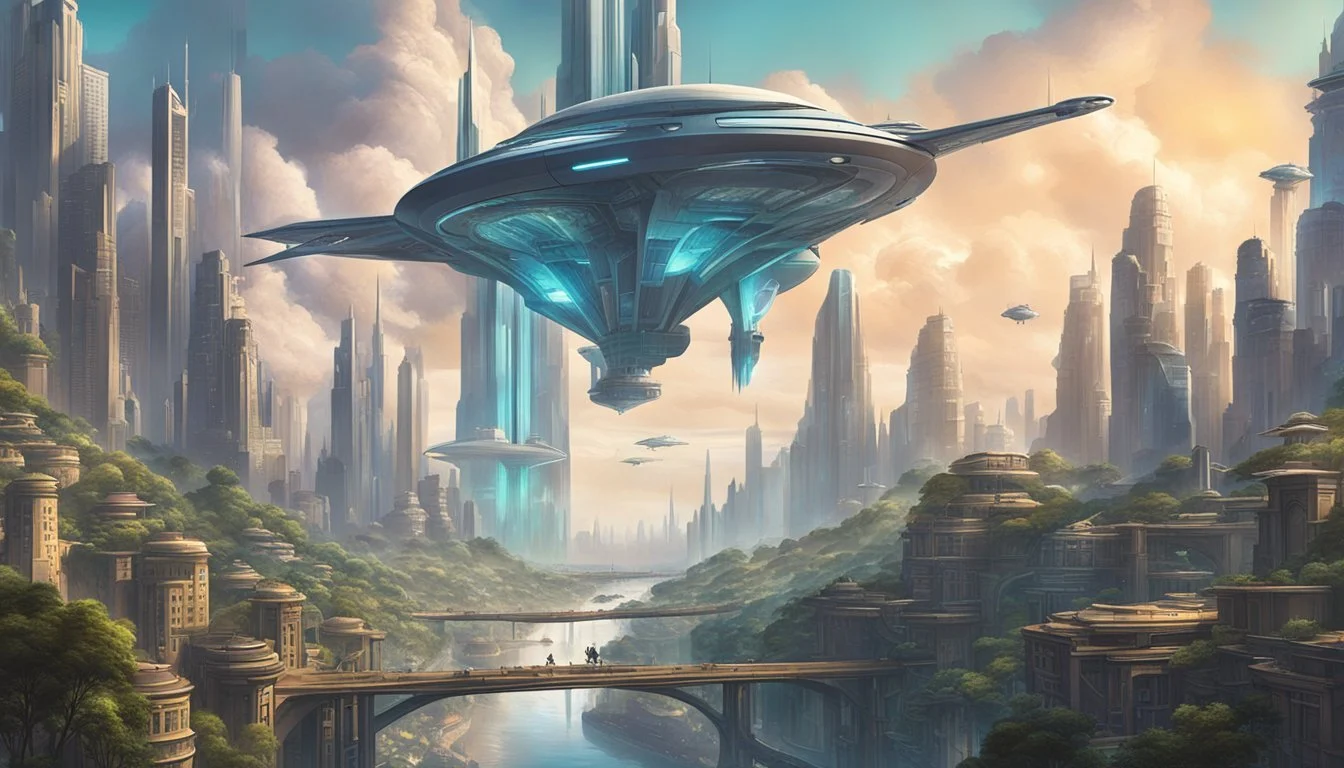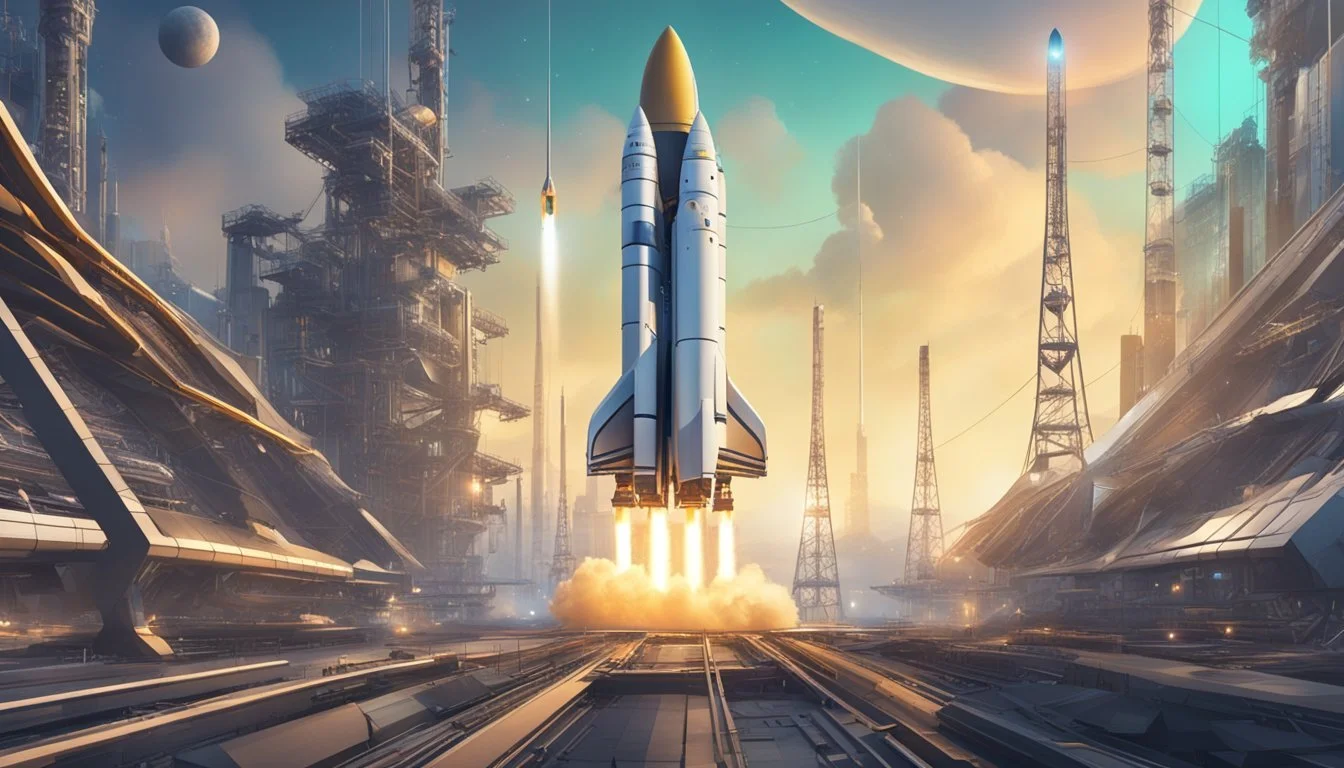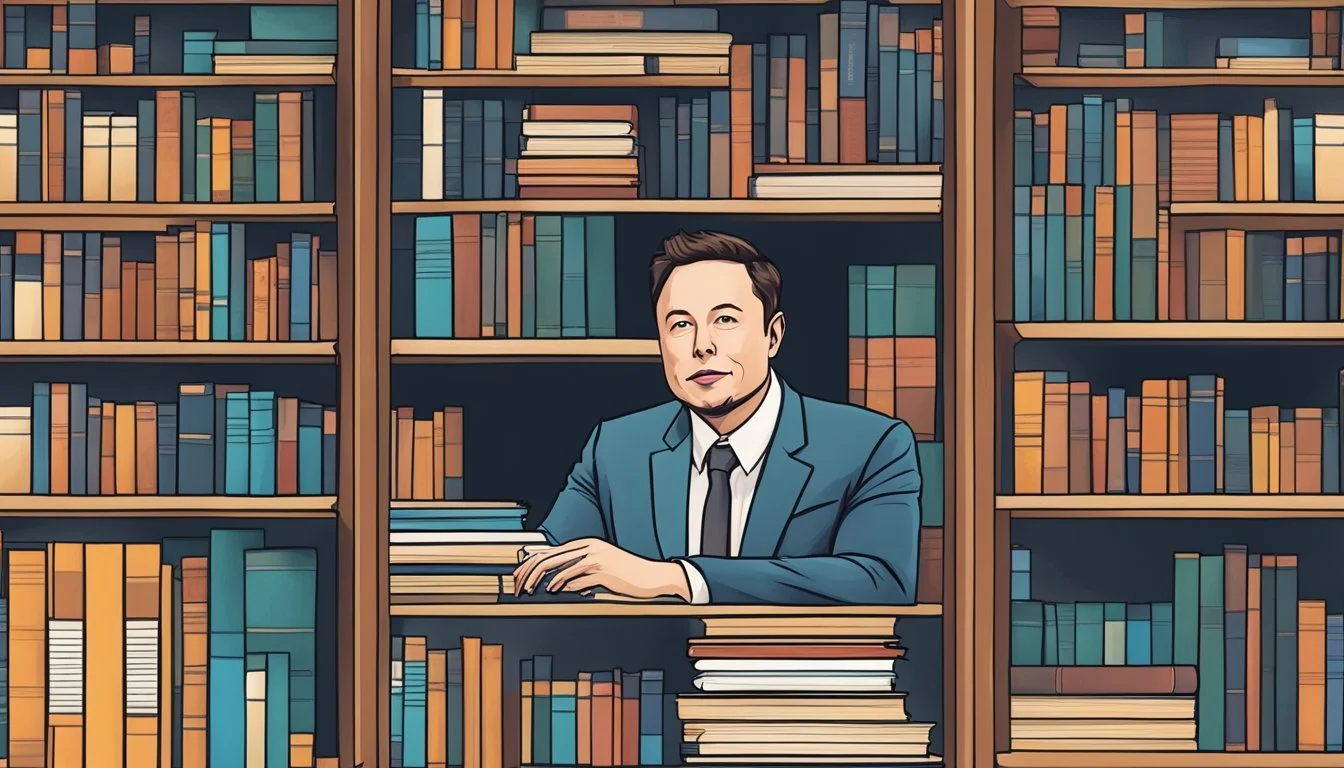Essential Reading List Inspired by Elon Musk's Favorite Literature
Essential Reads for Aspiring Innovators
Elon Musk, the visionary entrepreneur behind Tesla and SpaceX, is known for his voracious reading habits. His book recommendations span a wide range of genres, from science fiction to business and technology. Musk credits many of these books with shaping his worldview and inspiring his ambitious projects.
The tech mogul's reading list includes classic sci-fi novels like "The Lord of the Rings" trilogy and Iain M. Banks' Culture series. These works of fiction have influenced Musk's vision for the future and his approach to problem-solving. On the non-fiction side, he recommends books on artificial intelligence, rocket science, and business strategy.
Musk's book choices reflect his diverse interests and intellectual curiosity. He often encourages others to read widely, believing that knowledge from various fields can spark innovation and creativity. By exploring Musk's recommended books, readers can gain insight into the mind of one of the world's most influential entrepreneurs and perhaps find inspiration for their own endeavors.
Elon Musk's Influence in Literature
Elon Musk's impact on literature extends beyond his own reading habits. His recommendations and personal interests have shaped technological discourse and inspired new perspectives on historical figures.
Impact on Technology and Science Books
Musk's book recommendations often focus on artificial intelligence and technological advancement. He has praised James Barrat's "Our Final Invention," highlighting concerns about AI safety. This endorsement boosted the book's visibility and sparked discussions on AI ethics.
Musk's interest in space exploration has also influenced science literature. Books on rocket science and Mars colonization have gained popularity due to his SpaceX ventures. His public statements about these topics have inspired authors to tackle complex scientific concepts for general audiences.
Technical books on electric vehicles and sustainable energy have seen increased interest, partly due to Musk's work with Tesla. His advocacy for clean energy has led to a surge in publications exploring renewable technologies and their potential impact on society.
Inspiration Drawn from Biographies and Histories
Musk frequently cites biographies as influential reads. Walter Isaacson's "Benjamin Franklin: An American Life" is one he often recommends. This book's popularity has grown, with readers drawing parallels between Franklin's innovation and Musk's entrepreneurial spirit.
"Howard Hughes: His Life and Madness" is another biography Musk has praised. This renewed interest in Hughes has led to fresh examinations of the eccentric inventor's life and legacy. Musk's admiration for historical figures has inspired a new wave of biographical works focusing on innovative thinkers and risk-takers.
Musk's own life story has become a subject of literary interest. Biographies about him have become bestsellers, influencing how success stories are told in the tech industry. These books often highlight his reading habits, further amplifying the impact of his literary choices.
Themes of Entrepreneurship and Economics
Elon Musk's book recommendations reflect his interest in innovative business strategies and economic principles. These works provide insights into startup culture, disruptive technologies, and foundational economic theories.
Startup Culture and Strategy
"Zero to One" by Peter Thiel with Blake Masters is a cornerstone text for aspiring entrepreneurs. The book emphasizes creating unique businesses that bring something new to the market. Thiel argues that true innovation comes from creating monopolies rather than competing in crowded markets.
The book challenges readers to think beyond incremental improvements and instead focus on breakthrough technologies. It provides practical advice on building a startup, from assembling the right team to developing a sales strategy.
Musk's endorsement of this book aligns with his own approach to business, evident in ventures like SpaceX and Tesla. These companies have redefined their respective industries through radical innovation.
Economic Theories and Philosophies
Adam Smith's "The Wealth of Nations" is a seminal work in economic theory that Musk recommends. This classic text lays out fundamental concepts of free-market capitalism and division of labor.
Smith's ideas on specialization and productivity resonate with Musk's approach to manufacturing and industry. The book's exploration of supply and demand, market competition, and capital accumulation provides context for modern business strategies.
Musk's interest in this text reflects his broader view of economics and its role in technological advancement. It underscores the importance of understanding economic principles for entrepreneurs aiming to create significant market impact.
Exploration of Science Fiction and Fantasy
Elon Musk's reading list reflects a deep fascination with science fiction and fantasy. These genres have significantly influenced his vision and ambitions in technology and space exploration.
Classic Science Fiction Influences
J.R.R. Tolkien's "The Lord of the Rings" sparked Musk's early interest in epic storytelling. The vast world-building and heroic quests resonated with his ambitious nature.
Isaac Asimov's "Foundation" series profoundly impacted Musk's thinking. The concept of using science to predict and shape humanity's future aligns closely with his own technological endeavors.
Frank Herbert's "Dune" captivated Musk with its intricate political landscape and ecological themes. The novel's exploration of resource management on a hostile planet mirrors some of SpaceX's goals for Mars colonization.
Modern Science Fiction and Fantasy Reads
Douglas Adams' "The Hitchhiker's Guide to the Galaxy" appealed to Musk's sense of humor and philosophical musings about the universe. The book's irreverent take on space travel and technology offers a lighthearted contrast to his serious pursuits.
Iain M. Banks' "Culture" series intrigued Musk with its depiction of a post-scarcity society. The advanced technologies and AI systems in these novels align with his interests in artificial intelligence and space exploration.
Musk has also expressed admiration for contemporary sci-fi works that explore cutting-edge concepts in physics and technology. These books continue to fuel his imagination and drive for innovation.
Artificial Intelligence and Superintelligence
Elon Musk's book recommendations on AI and superintelligence reflect his deep interest in the future of technology and its potential impacts on humanity. These works explore the ethical implications, risks, and transformative potential of advanced AI systems.
AI Ethics and Future Perspectives
"Life 3.0" by Max Tegmark examines the implications of AI on the future of life. The book discusses potential scenarios for human-AI coexistence and the challenges of aligning AI goals with human values. Tegmark's work resonates with Musk's concerns about responsible AI development.
"Human Compatible" by Stuart Russell addresses the challenge of creating beneficial AI. Russell proposes a new approach to AI design that prioritizes human preferences. This aligns with Musk's advocacy for AI safety and ethical considerations in technological advancement.
"Our Final Invention" by James Barrat explores the potential risks of advanced AI. Barrat discusses the possibility of AI surpassing human intelligence and the need for careful development. Musk has endorsed this book, highlighting its relevance to understanding AI's future impact.
Theoretical Works on AI
"Superintelligence" by Nick Bostrom is a seminal work on the potential outcomes of creating machines with intelligence surpassing human levels. Bostrom analyzes various scenarios and challenges associated with superintelligent AI. Musk has publicly recommended this book, emphasizing its importance in understanding AI risks.
"Deep Learning" by Ian Goodfellow provides a technical foundation for understanding modern AI techniques. While not directly focused on ethics, it offers insights into the underlying technology driving AI advancements. This book complements the more philosophical works in Musk's recommendations.
These books collectively offer a comprehensive view of AI's potential, from technical foundations to long-term societal impacts. They reflect Musk's multifaceted approach to understanding and shaping the future of artificial intelligence.
Innovation in Space and Rocket Science
Books on space exploration and rocket science have played a crucial role in advancing our understanding of these fields. They capture the technical challenges, pioneering spirit, and cutting-edge innovations that drive humanity's quest to explore the cosmos.
Space Exploration Literature
"Liftoff" by Eric Berger chronicles SpaceX's early days and Elon Musk's vision for revolutionizing space travel. The book details the company's struggles and triumphs as it developed reusable rockets. It offers insights into the technical and financial hurdles SpaceX overcame.
Another influential work is "Ignition!" by John D. Clark. This book provides a comprehensive history of rocket propellants. Clark's witty narrative style makes complex chemistry accessible to readers. He covers the development of various propellants and their impact on rocket design.
Advancements in Rocketry
J.E. Gordon's "Structures: Or Why Things Don't Fall Down" explores the principles of structural engineering. While not solely focused on rockets, it offers valuable insights into designing spacecraft and launch vehicles. Gordon explains concepts like stress, strain, and material properties in clear terms.
SpaceX's innovations in reusable rockets have reshaped the industry. Their Falcon 9 and Falcon Heavy rockets can land vertically after launch, significantly reducing costs. This breakthrough has made space more accessible for commercial and scientific missions.
Rocket science continues to evolve with new propulsion technologies. Ion engines, nuclear thermal propulsion, and plasma thrusters are being developed for deep space exploration. These advancements promise faster travel times and more efficient use of resources in space.
Philosophical and Ethical Insights
Elon Musk's book recommendations reflect deep philosophical and ethical considerations. These texts explore individualism, objectivism, and critical examinations of technology's impact on society.
Individualism and Objectivism
Musk's reading list includes works that emphasize individual achievement and rational self-interest. "Atlas Shrugged" by Ayn Rand stands out as a cornerstone of objectivist philosophy. The novel promotes the idea that personal happiness is the highest moral purpose of life.
Rand's influence on Musk's thinking is evident in his entrepreneurial approach. He often emphasizes the importance of individual innovation and risk-taking in driving societal progress.
Friedrich Nietzsche's concept of the "Übermensch" or "Superman" also resonates with Musk's vision of human potential. This philosophical idea encourages individuals to set their own values and strive for greatness.
Critiques of Technology and Society
Musk's book choices reveal a keen interest in the potential pitfalls of technological advancement. E.M. Forster's "The Machine Stops" offers a prescient warning about over-reliance on technology.
The novella depicts a world where humans live in isolation, dependent on a vast machine for all their needs. This cautionary tale aligns with Musk's own warnings about the risks of artificial intelligence.
Samuel Beckett's "Waiting for Godot" provides a stark contrast to Musk's typically optimistic outlook. The play's themes of existential uncertainty and the futility of human existence offer a counterpoint to the idea of continuous technological progress.
Arthur Schopenhauer's pessimistic philosophy also features in Musk's reading list. His work challenges the notion that technological advancement necessarily leads to human happiness.
Elon Musk's Personal Recommendations
Elon Musk is known for his voracious reading habits and often shares book recommendations. He has praised several works that have influenced his thinking and career.
One book Musk frequently recommends is "Merchants of Doubt" by Naomi Oreskes and Erik M. Conway. This work examines how scientific facts are manipulated for political and commercial gain.
Musk has also endorsed "Screw Business as Usual" by Richard Branson. The book advocates for a more socially responsible approach to business and entrepreneurship.
The tech mogul has expressed admiration for biographies of influential figures. He particularly recommends Walter Isaacson's biography of Steve Jobs, which offers insights into the Apple co-founder's life and leadership style.
Musk's reading list spans various genres, including science fiction and technical manuals. He often suggests works by Iain M. Banks, especially the Culture series.
For those interested in space exploration, Musk recommends "Ignition!" by John D. Clark, a book about rocket propellants that he found both informative and entertaining.
These recommendations reflect Musk's diverse interests and his belief in continuous learning across multiple disciplines.






